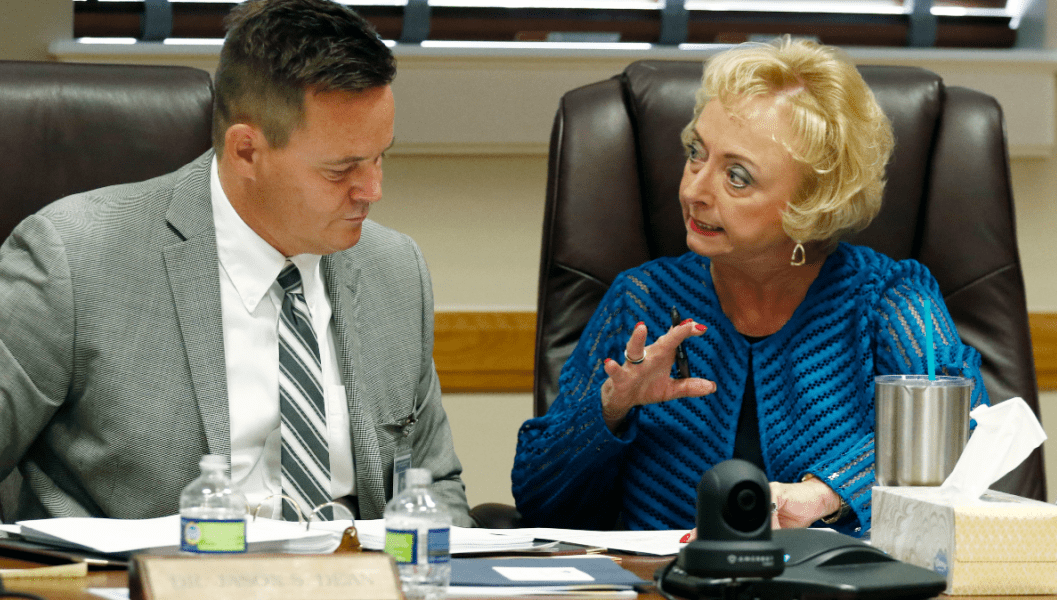
Former State Superintendent of Education Dr. Carey Wright rebuts a recent column in the L.A. Times claiming Mississippi “gamed its national reading test scores.”
Like educators in Mississippi and across the nation, I was shocked by the deeply cynical column in the Los Angeles Times about Mississippi’s well documented achievements in education over the past decade.
While the author acknowledges Mississippi’s historic, and sustained, gains in fourth-grade reading, he attempts to negate this achievement with a critique of unrelated social and health policies in the state.
Mississippi’s achievements in fourth-grade reading include student scores on the National Assessment of Educational Progress (NAEP) rising from the bottom nationally to ranking to 21st in the nation. In addition, Mississippi students living in poverty scored higher than their peers nationally. This achievement holds steady across all the state’s major racial and ethnic groups: Black, white and Hispanic students from low-income homes in Mississippi achieved higher scores than their peers nationally.
The author takes issue with the fact that some political leaders and journalists call these achievements the “Mississippi Miracle” because the state has more work to do to improve educational outcomes for all students.
Educators do not call these achievements a “miracle” because we know Mississippi’s progress in education is the result of strong policies, the effective implementation of a comprehensive statewide strategy and years of hard work from the state to the classroom level. We also know Mississippi has more work to do to improve student achievement in all grades, especially among Black and Hispanic students and students living in poverty. Though every state struggles to close achievement gaps, particularly among racial groups, Mississippi ranks No. 2 in the nation for closing the fourth-grade reading achievement gap between students in low-income families and their wealthier peers.
Educators know there is no quick fix to turning around generations of poor academic outcomes. Mississippi educators believe in the capacity for all children to learn and remain dedicated to their mission to improve achievement among all students. The author seems to suggest Black and Hispanic students in Mississippi will never do better.
The article also suggests that Mississippi’s policy of retaining students who do not pass a reading test in the third grade is “skewing” the state’s achievement data. This is not true. Mississippi’s literacy policy focuses on prevention and support, rather than retention. Students who are retained in third grade because of reading deficiencies are provided with intensive interventions and support throughout the school year so they will be successful in later grades.
A recent report from Boston University’s Wheelock Educational Policy Center found this strategy is working. The report reviewed English Language Arts scores and later academic outcomes from the first cohort of third graders promoted and retained under Mississippi’s Literacy-Based Promotion Act of 2013. The study compared the results between students narrowly promoted to the fourth grade and students narrowly retained in the third grade. By sixth grade, students who only just fell short of the promotion benchmark had substantial and sustained literacy gains on their English Language Arts scores compared to their peers who made the fourth grade promotion cut-off. These literacy gains were especially significant among African American and Hispanic students in the cohort.
Based on its success in the elementary grades, Mississippi has been extending its literacy strategy into middle and high school. Mississippi’s next cohort of eighth graders will take NAEP tests in early 2024. These students were in third grade when the state achieved its historic gains on fourth-grade NAEP reading in 2019. Though pandemic disruptions may affect 2024 scores, we are eager to see how students sustain their early literacy gains.

The narrative of Mississippi’s “failing” education system has been told for so long that some people have trouble accepting that Mississippi students and schools have achieved historic academic success. Despite the skepticism among some in the opinion class, policy and education leaders from more than 20 states have contacted Mississippi to learn about its successful blueprint for improving student outcomes.
For decades, Mississippi’s reputation for public education has been linked to its overall reputation — bringing to mind the conditions of segregation, poverty and ranking at the bottom in the nation in nearly every indicator of health and well-being. Those conditions have long presented challenges to educators in Mississippi, just as they do in communities around the United States that face the same issues.
Despite these challenges, Mississippi set the stage for its achievements through a coordinated effort that combined policy, evidence-based strategies, investments in teacher training and student support systems and an unwavering belief that all Mississippi children — including poor, Black and Hispanic children — can and will do better.







